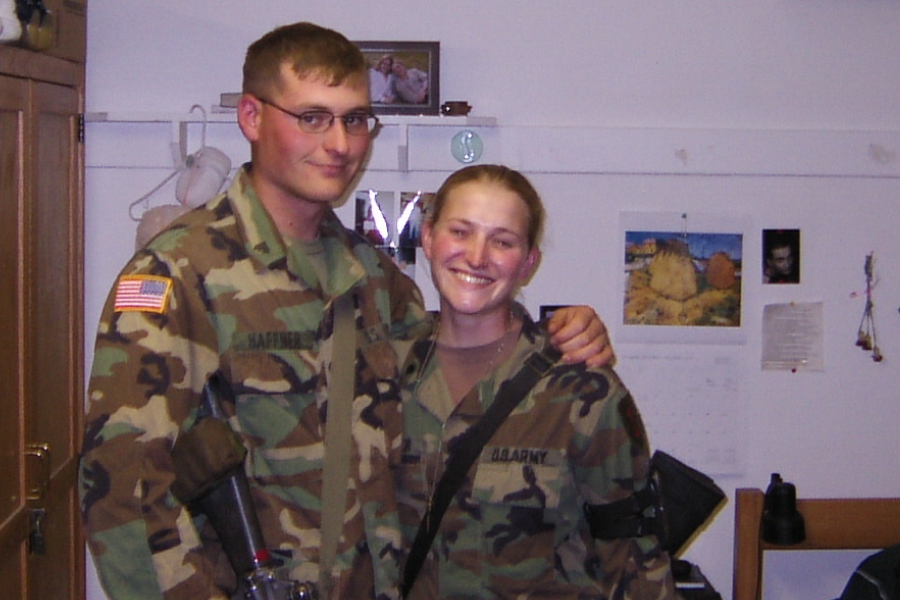Judaline Cassidy didn’t set out to become a plumber—until fate conspired to begin her journey.
“I began plumbing in the beautiful twin islands of Trinidad and Tobago,” Cassidy said. “And I didn’t have the financial means to attend university. Back then, after you finished secondary school, there were other schools that you could go to learn a trade. Knowing that a lot of women would be doing the secretarial work and all those things that I didn’t like anyway, I decided I would give myself better odds by applying to the programs the men were doing.”
An unexpected path
While women are starting to grow their presence in construction, for the most part the evolving female presence in the industry is confined to office or administrative jobs, not in the trades or other jobsite roles. Just 1% of all jobsite construction professionals are women, according to the most recent data.
But Cassidy is looking to help those numbers grow. A professional plumber and inspirational speaker, Cassidy has a deep love for the art of plumbing and a passion for inspiring other women to join her.
From day one, Cassidy was unafraid to face down the obstacles in her path. “When I got to the school for my interview, the instructor looked at my size and said he didn’t think I’d be strong enough to be a plumber. So I dropped down and started doing push-ups.” The instructor was impressed by Cassidy’s unconventional approach. “I was one of the first three women to be actually accepted in that program,” she said, “just because of playing those odds.”
After marrying and moving to America at age 19, Cassidy wasn’t sure how to get back into plumbing until she received support from an unexpected source.
“Back in the 1990s in New York City, a lot of people of color didn’t have opportunities to work on construction sites and get into the union and make money,” she said. “So they formed groups called coalitions, and they would go on construction sites and jobsites and demand work. When I moved to Staten Island, my neighbor was the leader of one of the coalitions, and when a job came up, he told me I should take it.”
Facing down challenges
Even with a hand up from a mentor, Cassidy had to prove herself to others. “On the first day, I pulled up at the jobsite, and everyone was looking at me. I had a Jeep, and I’m so short that I had to jack my seat all the way up, and still put a cushion when I drive. Everyone was watching as I pushed a button, as I got lower and lower, until I opened the door and came out. When the men saw me, they all started laughing.”
Cassidy wasn’t daunted. She went straight over to the place where the team was working and talked to the person in charge.

“I walked up to the gentleman who was the foreman and said, ‘I’m the plumber.’ And he says to me, “Get the F-bomb out of here. There’s no way you can be the plumber.”
“So I said to him, ‘Listen, this is what we can do. I could work for the day. And if I don’t do a good job, you don’t have to pay me. And if I suck, I don’t have to come back.’ Of course, he wanted to win that challenge. So he took me up on the offer, and he lost and he kept me.”
Cassidy drew her indomitable spirit once more when it came time for her to enter the union. With the support of her mentor, Brian Totora, she became the first woman to get into the Staten Island, New York, Plumber’s Local Number 371.
“I had tons of superhero brothers that showed up for me,” she said. “So I say to the men who are reading this article, become an ally for the women on the job. Teach her the craft. Become her mentor. Teach her just like you would teach a young male. Don’t hold back, teach her all that she can be. And she’ll never, ever forget. Once she learns from you, she’ll become a vessel to teach others like you have taught her. Show up for her and be an ally. That’s my little slogan for men: Be an ally.”
Sharing her wisdom
The desire to be an ally to young women in construction was what led Cassidy to her motivational speaking path. About “15 or 20 years ago, I found out that, since 1970, the [percentage] of women in construction was 3% and it hadn’t changed. When I saw that, I thought: How can I change that? How can I get more women and more girls to know that this career is lucrative? There’s no debt. It’s a game changer. It’s a way to move from poverty to the middle class, to being filthy rich by having your own business. I want them to really know that jobs truly don’t have genders. Just go for it! Because if Judaline, who’s 4 feet and 11 inches can do it, you definitely can do it.”
When Cassidy speaks to companies, she tells them how important it is to think outside the box when it comes to hiring. “I want you to look beyond the person’s height, their size, their immigrant status, their gender,” she said. “Because if I can do it, somebody else can do it, too. I speak about how important it is to think outside of your tribe. We all have biases. But what if we were intentional about addressing them? We can change our companies and the way we run things by really showing women that you want us to be there. We are 51% of the population—and we are absolutely amazing.”











